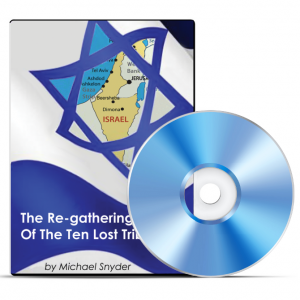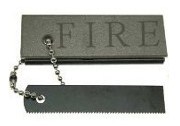|
|
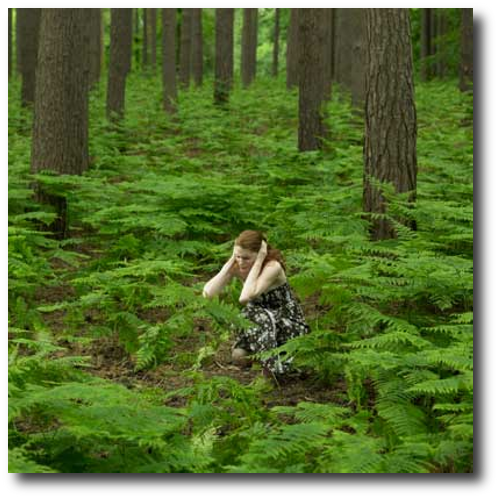
No one knows when a natural disaster or emergency will strike. We have all seen the television shows that portray people trying to surviving in the wilderness, surviving plane crashes and natural disasters that can occur. Seeing it on television and having it happen to you are two different things. We must be prepared! Supplies for emergency preparedness should include shopping for an additional source of shelter, food, sanitation and hygiene, light, communication, first aid, water and survival kits. Being prepared by shopping for survival items is necessary so that you and your family can survive days or weeks until you can be rescued or return to a normal state of living. So, what should you shop for?
Food
Natural disasters can last a few days, a few weeks, or even months depending on the disaster and circumstances. After seeing some natural disasters such as earthquakes, the tsunami, and hurricanes like Katrina, it’s safe to have one to 12 months worth of food in storage as part of your survival supplies. The type of food to buy would be freeze dried, dehydrated and canned goods that don’t need refrigeration. (Read more....) […]
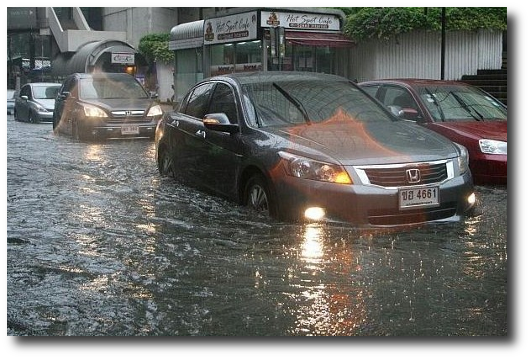
Floods are the most common natural disaster in the United States. While a flood could be the result of many days of rain, heavy rains and broken levees could result in a flash flood.
Flash floods arrive over the span of a few hours, which leaves little room to prepare once the threat is imminent. The safest approach to preparing for a flood or any natural disaster is to have a plan in place well before the threat actually arises.
At Home
When preparing for any natural disaster, it is important to have an emergency supply kit. Because most natural disasters will require you to evacuate, you will want to create a supply kit that is portable. This could be as simple as a hiking backpack or storage containers that can easily be loaded into the car.
Basic Emergency Checklist
· Water
· Food with a long shelf-life
· An NOAA weather radio
· Batteries
· Flashlight/Lantern
· Camping gear
· A change of climate appropriate clothes for the entire family
· First Aid Kit and any prescription medicine
If you live in a flood plain, you will need to identify an evacuation point. This (Read more....) […]
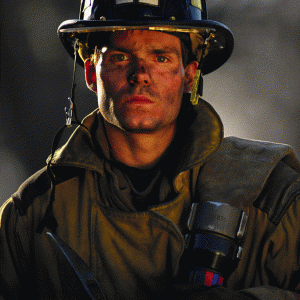 If you live in a rural area, then you probably know that some fire departments in local towns are built almost entirely of volunteer firemen. This is a great way for the town to save money, and they can actually double their savings by also purchasing used fire apparatus. While safety is definitely the most important factor at the end of the day, it wouldn’t hurt to also be able to save a few bucks in the process. If you are thinking about volunteering as a fireman in your local town, then there are a few facts that you need to know before you continue. If you live in a rural area, then you probably know that some fire departments in local towns are built almost entirely of volunteer firemen. This is a great way for the town to save money, and they can actually double their savings by also purchasing used fire apparatus. While safety is definitely the most important factor at the end of the day, it wouldn’t hurt to also be able to save a few bucks in the process. If you are thinking about volunteering as a fireman in your local town, then there are a few facts that you need to know before you continue.
The first thing that you need to realize when you are a volunteer fireman is that you are not going to get the same pay as the actual firemen in your town. In fact, you aren’t going to get paid at all for your services. This is basically a way for you to give back to the community, and it helps the town tremendously because they (Read more....) […]
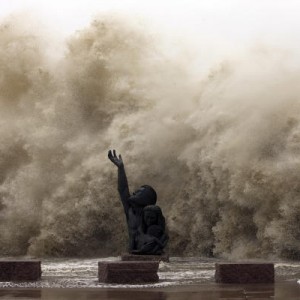 Having lived in Houston, Texas off and on for many years, I was used to much-hyped hurricanes heading our way from the Gulf that, when they finally arrived, did little but dump a bunch of rain on the city and make everyone panic. This was usually a humorous and benign phenomenon that led to nothing more than long lines at the grocery stores. But after 2005, when Hurricane Rita hit and there were actually fatalities caused NOT by the actual storm but the panicked evacuation (this was right after Katrina, remember), I resolved to stay calm and stay in town next time. Having lived in Houston, Texas off and on for many years, I was used to much-hyped hurricanes heading our way from the Gulf that, when they finally arrived, did little but dump a bunch of rain on the city and make everyone panic. This was usually a humorous and benign phenomenon that led to nothing more than long lines at the grocery stores. But after 2005, when Hurricane Rita hit and there were actually fatalities caused NOT by the actual storm but the panicked evacuation (this was right after Katrina, remember), I resolved to stay calm and stay in town next time.
Photo Credit Hurricane Ike sweeps ashore in Galveston
“Next time” turned out to be 2008 and Hurricane Ike. We took the day off from work as the mayor ordered, boarded up the windows, “battened down the hatches” and waited. Arriving late in the night, the storm was a sight to see. Flashes of green light appeared on the horizon as the transformers blew.
When we woke (Read more....) […]
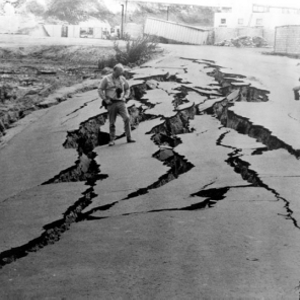 Why earthquake safety preventing measures should be taken long before any earthquake begins, there are certain rules you need to obey while the effective shaking takes place. Do not count on advice that you may have heard from anecdotal sources. When an earthquake is very violent, you cannot afford taking chances. Here are the emergency steps experts recommend, as part of the Drop, Cover and Hold On procedure. Why earthquake safety preventing measures should be taken long before any earthquake begins, there are certain rules you need to obey while the effective shaking takes place. Do not count on advice that you may have heard from anecdotal sources. When an earthquake is very violent, you cannot afford taking chances. Here are the emergency steps experts recommend, as part of the Drop, Cover and Hold On procedure.
Drop
When an earthquake starts, the shaking can be so violent that it can knock you down. You can prevent this from happening by dropping to your arms and knees as soon as you feel the first shakes. While this may seem like an exaggeration to you, the truth is that you have much more stability if you are helping yourself with both arms and legs. The intensity of the earthquake is likely to be more powerful than you imagine, and holding yourself steady on both your feet may be harder to achieve.
Cover
The second step you need to undertake when an earthquake starts is to cover your head, neck, and body to protect them from injury. If you cannot find a proper place to hide your entire body, such as a desk or a sturdy table, at least protect your head and neck. Specialists (Read more....) […]
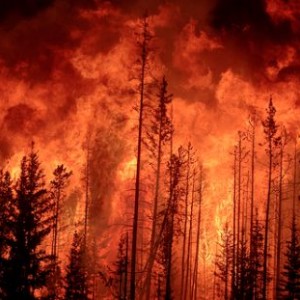 Whether you live in or visit a densely wooded area that is susceptible to wildfires, it is extremely important to understand the risks and causes of these unfortunate and often preventable disasters. Wildfires are very dangerous and can rip through acres of land in no time at all, leaving nothing but ashes behind. This is why you must take action as soon as a wildfire is reported near you. If you would like to know how to survive a wildfire, take some time to look over the following wildfire survival tips. Whether you live in or visit a densely wooded area that is susceptible to wildfires, it is extremely important to understand the risks and causes of these unfortunate and often preventable disasters. Wildfires are very dangerous and can rip through acres of land in no time at all, leaving nothing but ashes behind. This is why you must take action as soon as a wildfire is reported near you. If you would like to know how to survive a wildfire, take some time to look over the following wildfire survival tips.
Have a Plan
Many people make their homes in heavily wooded areas, while others camp, hunt, or hike these areas on a regular basis. Regardless if you live in or visit these areas for sport or leisure, you should always have a plan in place in case a wildfire happens to strike. If your home is in a wildfire-prone area, make sure your family has an emergency evacuation plan. You should also make arrangements for temporary housing, as this will be necessary if you need to evacuate. The same goes for visitors (hunters, campers, etc.) of heavily wooded areas. Before visiting, you should research the area so you are familiar with it and are prepared if there happens to be a wildfire.
Take Some Precautions
Both (Read more....) […]
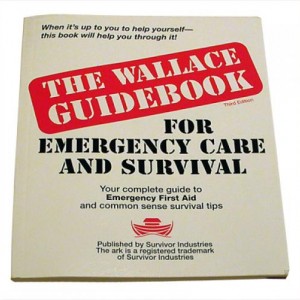 Every victim of a disaster has two things in common; self-preservation and the sudden realization of the situation. Most will experience panic, fear and despair to a greater or lesser degree. The victims may very often survive the actual disaster, but not the hours or days afterwards simply because they were not prepared for Every victim of a disaster has two things in common; self-preservation and the sudden realization of the situation. Most will experience panic, fear and despair to a greater or lesser degree. The victims may very often survive the actual disaster, but not the hours or days afterwards simply because they were not prepared for
an emergency situation.
The fewer the preparations for a disaster and the more inadequate the mental preparations of those affected, the greater the number of casualties. In moments of extremity and panic, we will see humanity replaced by the brute use of “self-preservation.”
Research also shows us that a lack of training or preparedness to meet survival encounters is often a cause for violent greed and selfishness. When people, through apathy or lack of discipline, lose their sense of being connected to others, they will act on the principle of “every man for themself.” Again and again, survivors have declared that they owed their lives to mental preparedness. They had remembered some exercise or procedure that had prepared them for their encounter. Remember…… DISASTERS ARE NOT PLANNED, THEY SIMPLY HAPPEN.”
If (Read more....) […]
|
|









